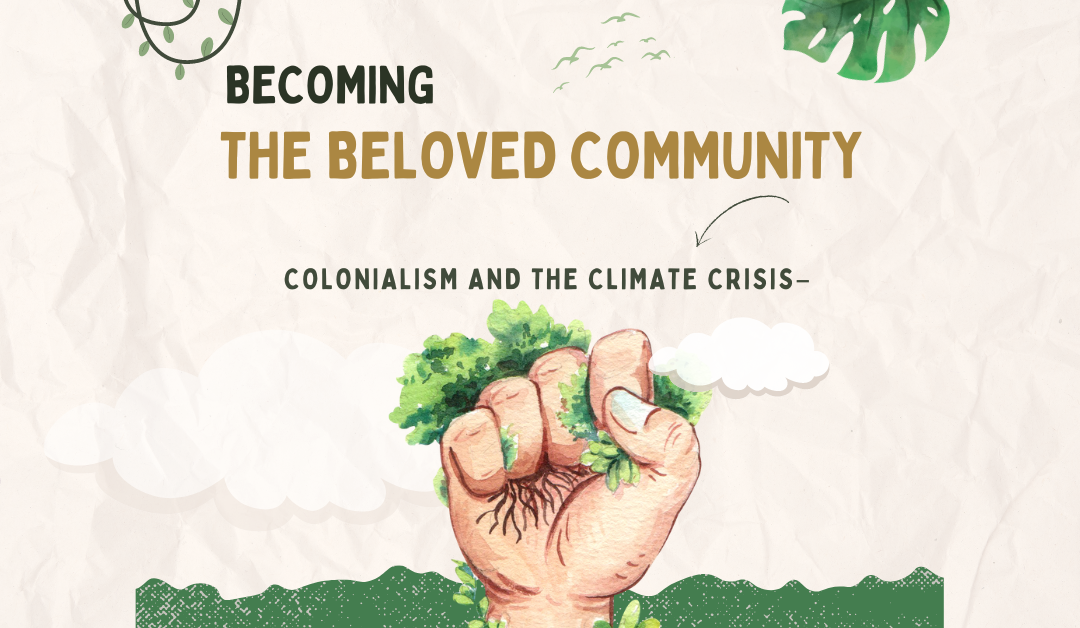What does the history of colonialism have to do with the current climate crisis? Almost everything! In a 2022, the Intergovernmental Panel on Climate Change (IPCC), made up of leading climate scientists, released a report acknowledging that colonialism is a historic and ongoing driver of the climate crisis. Indigenous scholars have further addressed how colonialism stands for colonialist ideologies that sever the deep ties and interconnections between humans, plants, animals, and the soil. Western colonialist people have often failed – or refused – to recognize this interconnectedness.
“Instead of treating the Earth like a precious entity that gives us life, Western colonial legacies operate within a paradigm that assumes they can extract its natural resources as much as they want, and the Earth will regenerate itself.” -Hadeel Assali
Colonialism was motivated by the promise of plundering the environment and subjugating populations. Not only did it enslave and decimate indigenous populations; it also actively suppressed the indigenous knowledge of land and resource management. This led to desertification of the land, drying up of water sources, increased risk of forest fires, decimation of biodiversity, and pollution and poisoning from mining and industry driven by the capitalist systems inherent in the colonization of countries. And this is not a history confined to the past; no, it is actively continuing today. One only needs to look right here in Arizona to see the Dine people (Navajo) in their ongoing fight to stop uranium mining on their lands. Because our very institutions and systems were developed out of a colonizer’s mindset, the pervasive and persistent institutions of colonialism make it far more challenging to address the climate crisis and implement solutions, especially in a just and equitable way. We all should know by now that the climate change impacts in the Global South, comprised of 78 low-income countries, are facing the worst impacts. They are also the least responsible for climate-warming emissions; the entire continent of Africa accounts for the lowest share of greenhouse gas emissions at 3.8 percent. In contrast, the U.S. and European Union are responsible for 19 percent and 13 percent of global emissions, respectively.
“As long as these ongoing legacies of imperialism and colonialism do not change, we have little hope for environmental justice and climate change mitigation. We collectively require a lot of re-education that focuses on decolonization to fully understand how our world functions.Then we can finally start to envision a future that is different from the exploitative structures and institutions that we are now stuck within.” -Hadeel Assali
Dig Deeper: How Colonialism Spawned and Continues to Exacerbate the Climate Crisis (short article) Why Pollution is as Much About Colonialism as Chemicals (short podcast) Patriarchy, racism, and colonialism caused the climate crisis (short TED talk)

